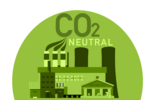News Release from windfair.net
Wind Industry Profile of
BASF Wants to Achieve Net Zero Emissions by 2050
Based on the most recent progress in developing low-emission and CO2-free technologies, the company is significantly raising its medium-term 2030 target for reductions in greenhouse gas emissions: BASF now wants to reduce its greenhouse gas emissions worldwide by 25 percent compared with 2018 – and to achieve this despite targeted growth and the construction of a large 'Verbund site' in South China.
“The new climate goals underscore our determination and BASF’s commitment to the Paris Climate Agreement. Climate change is the greatest challenge of the 21st century. In response, we must adapt our processes and our product portfolio. We need to accelerate this transformation now. We must first concentrate on the initial steps of this journey, not the final ones. That is why BASF will increase its use of renewable energies. And we will accelerate the development and deployment of new CO2-free processes for the production of chemicals. With transparency and offerings to systematically and incrementally reduce the carbon footprint of BASF products throughout the entire value chain, we help our customers in all industries to reduce the carbon footprint of their own products,” said Dr. Martin Brudermüller, Chairman of the Board of Executive Directors of BASF SE.
Next to renewables, hydrogen will play an important role in the production process at BASF. Hydrogen is an important feedstock for many chemical production processes and to achieve CO2-free production of hydrogen, BASF is pursuing two processes in parallel: the commercially available water electrolysis and methane pyrolysis, for which BASF has developed a new process technology. Another important lever to increase energy efficiency is the use of electrical heat pumps to produce CO2-free steam from waste heat. BASF’s goal is to work with Siemens Energy to gradually ramp up this technology to industrial scale and use it for waste heat recovery at entire sites.
BASF expects that this switch to climate-neutral production processes will lead to a sharp increase in electricity demand at the group’s major sites, including the largest production site in Ludwigshafen, Germany, in the coming decade. From around 2035, the group’s electricity demand is expected to be more than three times higher than it is today.
“This will require investments for the development and construction of new production plants. A precondition for the transformation of chemical production is the reliable availability of large quantities of renewable electricity at competitive prices. At the moment, that is not the case in Germany. BASF therefore aims to participate in investments in renewable energy generation facilities to meet its own demand. Regulatory framework conditions are also essential for making this transformation economically feasible,” added Brudermüller.
- Author:
- Windfair Editors
- Email:
- press@windfair.net
- Keywords:
- BASF, chemical, hydrogen, renewable energy, electricity, net zero, emissions, investment, climate neutrality, CO2, Paris Agreement
























